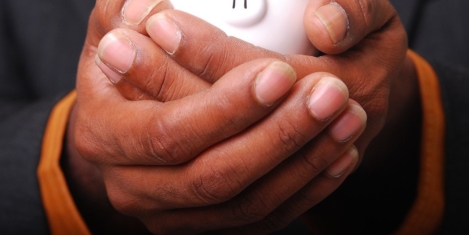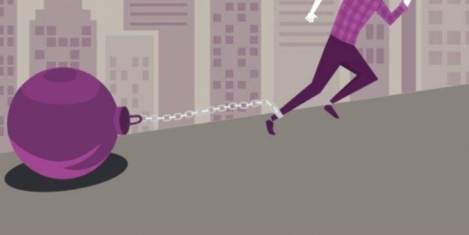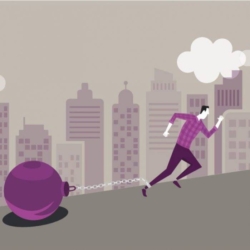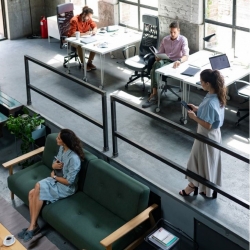To provide the best experiences, we use technologies like cookies to store and/or access device information. Consenting to these technologies will allow us to process data such as browsing behaviour or unique IDs on this site. Not consenting or withdrawing consent, may adversely affect certain features and functions.
The technical storage or access is strictly necessary for the legitimate purpose of enabling the use of a specific service explicitly requested by the subscriber or user, or for the sole purpose of carrying out the transmission of a communication over an electronic communications network.
The technical storage or access is necessary for the legitimate purpose of storing preferences that are not requested by the subscriber or user.
The technical storage or access that is used exclusively for statistical purposes.
The technical storage or access that is used exclusively for anonymous statistical purposes. Without a subpoena, voluntary compliance on the part of your Internet Service Provider, or additional records from a third party, information stored or retrieved for this purpose alone cannot usually be used to identify you.
The technical storage or access is required to create user profiles to send advertising, or to track the user on a website or across several websites for similar marketing purposes.
 Asana, the work management platform, has launched a new research study, which highlights the increased levels of imposter syndrome, anxiety and burnout now being felt by British office workers. At a time when many workers are now facing the reality of a new national lockdown, over two-thirds (69 percent) claim they are currently suffering from imposter syndrome, and nearly half (45 percent) say this has increased while operating in a remote working environment. (more…)
Asana, the work management platform, has launched a new research study, which highlights the increased levels of imposter syndrome, anxiety and burnout now being felt by British office workers. At a time when many workers are now facing the reality of a new national lockdown, over two-thirds (69 percent) claim they are currently suffering from imposter syndrome, and nearly half (45 percent) say this has increased while operating in a remote working environment. (more…)






 Employers are failing to identify and tackle potential age bias in their recruitment process, with most employers interviewed not seeing it as a ‘problem’ in their organisation, according to a new report by the
Employers are failing to identify and tackle potential age bias in their recruitment process, with most employers interviewed not seeing it as a ‘problem’ in their organisation, according to a new report by the 
 Hardworking professionals are feeling the effects of longer working days and unpaid overtime, according to new research by law firm,
Hardworking professionals are feeling the effects of longer working days and unpaid overtime, according to new research by law firm, 
 As companies struggle to motivate teams working remotely, new research by the charity
As companies struggle to motivate teams working remotely, new research by the charity 
 A new survey from
A new survey from 
 Organisations face a crisis of trust this year if they continue to make workplace decisions in the dark, according to employee experience platform,
Organisations face a crisis of trust this year if they continue to make workplace decisions in the dark, according to employee experience platform, 
 Financial distress is more damaging to the wellbeing of the self-employed than those in employment, claims new research from
Financial distress is more damaging to the wellbeing of the self-employed than those in employment, claims new research from 
 The greater stress companies put on financial incentives and financial performance in bonus systems for CEOs, the more negative the impact is on the firm’s financial performance, claims new research from
The greater stress companies put on financial incentives and financial performance in bonus systems for CEOs, the more negative the impact is on the firm’s financial performance, claims new research from 


 Data from thousands of employees across the country has been aggregated in a new report, detailing the mental wellbeing of the workforce over the course of the year. The research from
Data from thousands of employees across the country has been aggregated in a new report, detailing the mental wellbeing of the workforce over the course of the year. The research from 
 A review of research in organisational and workplace psychology conducted by an international team of academics claims that working from home has been more disruptive for women than men. The review paper, entitled
A review of research in organisational and workplace psychology conducted by an international team of academics claims that working from home has been more disruptive for women than men. The review paper, entitled 
 Avison Young, realestateworks and HLM Architects have launched
Avison Young, realestateworks and HLM Architects have launched 







